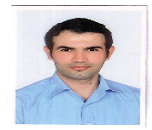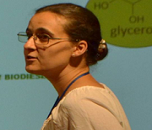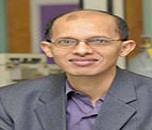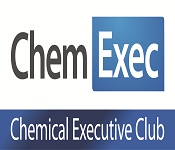Theme: Exploring the latest trends in Chemical Engineering
Euro Chemical Engineering 2017
ConferenceSeries Ltd inviting all Chemical Engineers and Biotechnologists from across the globe to take part in the 2nd International Conference on Advances in Chemical Engineering & Technology which is going to be held during November 16-17, 2017 at Paris, France and open your voices to support our theme “Exploring the latest trends in Chemical engineering: Eurochemical Engineering”.
Scope and Importance
Chemical engineers face many of the same challenges that other professionals face, and they meet these challenges by applying their technical knowledge, communication and teamwork skills; the most up-to-date practices available; and hard work. Eurochemical Engineering 2017 is the conference where Chemical Engineers and Biotechnologists gather to discuss about the applications of chemical engineering in life sciences and challenges in achieving the results. Biochemical engineering, a subset of chemical engineering, impacts a broad range of industries, including health care, agriculture, food, enzymes, chemicals, waste treatment, and energy. Biochemical engineering has been central to the development of the biotechnology industry, especially with the need to generate prospective products (often using genetically engineered microorganisms) on scales sufficient for testing, regulatory evaluation, and subsequent sale.
Target Audience:
- Professors, Researchers, Students and Technical Staff from the field of Chemical Engineering and Biotechnology
- Chemical Engineers and Biotechnologists
- Directors/Co-Directors of research based companies across Europe and US who are investing in Biochemical Engineering
- Biotech Company Directors and Scientists
Conference Series Conferences invites all the participants from all over the world to attend 5th International Conference on Advances in Chemical Engineering & Technology during October 4-5, 2018 at London, UK which includes prompt keynote presentations, Oral talks, Workshops, Poster presentations and Exhibitions.
Theme of the Eurochemical Engineering 2017 conference is Exploring the latest trends in Chemical Engineering: Eurochemical Engineering with an objective to encourage young minds and their research abilities by providing an opportunity to meet the experts in the field of Engineering. Chemical events are designed to explore various applications in different fields.
Conference Series organizes a conference series of 3000+ Global Events with over 600+ Conferences, 1200+ Symposiums and 1200+ Workshops in Europe, USA, & Asia with support from 1000 more scientific societies and publishes 700+ Open access journals which contains over 30000 eminent personalities, reputed scientists as editorial board members.
Track 1: Chemical Engineering
Chemical engineering is normally includes the fundamentals of mass, momentum, thermodynamics and chemical kinetics. Chemical process Technology is a method which is used in fabrication or on an industrial scale to change the production of chemicals and materials. New concepts and innovations were introduced in chemical engineering like transport phenomena, process system engineering because unit operations alone was insufficient in developing chemical reactors. Chemical reaction engineering involves organizing plant processes and conditions to ensure optimal plant operation to construct models for reactor process design and analysis. Many applications of chemical engineering involves in day to day life like rubber, plastic, cement, sugar, ceramic etc.
Related conferences: 3rd International Conference on Ceramics and Composite Materials, June 29-30, 2017, Madrid, Spain; Global Conference on Physical Chemistry, April 17-18, 2017 Las Vegas, USA; International Conference on Electro Chemistry, July 10-11, 2017 Berlin, Germany; International Conference on Chemical Engineering, October 1-5 2017, Barcelona, Spain; 5th Annual International Conference on Chemistry, Chemical Engineering and Chemical Process, 6-7 February 2017, Singapore; 19th International Conference on Chemical Engineering and Process Technology, January 26-27, 2017, Innsbruck, Austria
Related Socities and Associations: International Chemical Trade Association, American Chemical Society, European Federation of Chemical Engineering, International council of Chemical Associations, Canadian Society for Chemical Engineering, Colombian Association of Chemical Engineering, Brazilian Association of Chemical Engineering, Canadian Society for Chemical Engineering (CSChE), Society of Chemical Engineers New Zeeland, Thai Institute of Chemical Engineering and Applied Chemistry, The Society of Chemical Engineers Japan, International Plasma Chemistry Society, World Chemical Engineering Council, Israel Institute of Chemical Engineers society, The American Association of Biochemists, The Royal Australian Chemical Institute
Track 2: Catalysis Engineering
Catalysts are complex materials that have to fulfill many criteria on multiple scales, in order to be successfully used in catalytic processes. There are different types of catalysis process like photo catalysis, Thermo catalysis, and Nano catalysis etc. Heterogeneous catalysts act in a different phase than the reactants. Most of the heterogeneous catalysts are solids that act on substrates in a gaseous or liquid reaction mixture. Industrial process chemistry is the key components of heavy industry. Industrial processes are procedures involving chemical, physical, electrical technologies to aid in the manufacturing of an item that usually carried out on a very large scale.
Related Conferences: Global Summit on Physical Chemistry, April 17-18, 2017, Las Vegas, USA, 2nd International Conference on Industrial Chemistry and Water Treatment, May 22-23, 2017, Las Vegas, USA; 4th European Chemistry Congress, May 11-13, 2017 Barcelona, Spain; International Conference on Industrial Engineering January 3-5, 2017, Rome, Italy; 7th Asia Pacific Conference on Catalysis, January 17-21, 2017, Mumbai, Maharashtra, India; International Conference on Heterogeneous Catalysis and Green Chemistry, January 13-14 , 2017, Zurich, Switzerland; 6th International Conference on Advanced control of industrial processes, May 28- 31, 2017, Taipei, Taiwan
Related Socities and Associations: International Associations of catalysis societies, Czech Society of Chemical Engineering, Brazilian Association of Chemical Engineering, American Chemical Society, The American Association of Biochemists, Brazilian Association of Chemical Engineering, Federation of Asian and Oceanic Biochemistry and Molecular Biology, Argentinian Association for Chemical Engineers, Indian Institute of Chemical Engineers, Society of Chemical Industry, Federation of European Biochemical Societies, Japan Bio industry Association, Biotech Research Society, India, International Chemical Trade Association, European Federation of Chemical Engineering , International Chemical Trade Association, American Chemical Society, European Federation of Chemical Engineering, International council of Chemical Associations, Canadian Society for Chemical Engineering, Colombian Association of Chemical Engineering,
Track 3: Chemical Engineering-A separation process
A Separation process is a technique to achieve any mass transfer occurrence that converts a mixture of substances into two or more individual product mixtures. Separations may differ in chemical properties or physical properties such as size, shape, mass, density, between the constituents of a mixture. They are often categorised according to the particular differences they use to achieve separation. Separation process consists of different techniques like distillation, extraction, zone refining etc. Adsorption is the union of atoms, ions or molecules from a gas, liquid to a surface. Distillation is a type of technique used for liquid mixtures with different boiling points. Chromatography separates dissolved particles by different interaction.
Related Conferences:World Congress on Chromatography, August 7-8, 2017,Rome, Italy; World Congress on Chemistry, November 13-15, 2017, Lisbon, Portugal; 7th Petro chemistry congress and Chemical Engineering, November 13-15, 2017, Atlanta, USA; 2nd International Conference on Physics, August 28-30, 2017 Brussels, Belgium; 6th International Conference on Petroleum Engineering, June 29-July 01, 2017 Madrid, Spain; 3rd International conference on Separation Techniques, October 23-25, 2017, Paris, France; 7th International Conference on Chemistry and Chemical Process, February 08-10,2017, Frankfurt, Germany; 2nd international conference on Sustainable Chemistry May 14-17, 2017, Berlin Germany; 19th International Conference on Chemical Engineering and Applications, June 15-16,2017,Toronto,Canada
Related Socities and Associations: Canadian Society for Chemical Engineering (CSChE), , Czech Society of Chemical Engineering, Federation Asian Chemical Societies, International Plasma Chemistry Society, International Associations of catalysis societies, The American Association of Biochemists, Brazilian Association of Chemical Engineering, Colombian Association of Chemical Engineering, Israel Institute of Chemical Engineers, Canadian Society for Chemical Engineering, The Royal Australian Chemical Institute, Federation of Asian and Oceanic Biochemistry and Molecular Biology, Food processing suppliers association, Thai Institute of Chemical Engineering and Applied Chemistry, International Society of electrochemistry
Track 4: Chemical reactors
In Chemical Engineering, the Chemical reactor is a closed vessel and it is used to operate different activities like reaction, distillation, crystallization etc. There are different types of chemical reactors like Batch reactors, Semi Batch reactor, Continuous Batch reactor, Catalytic reactor. Batch reactor is a vessel which is used to mix chemicals under tightly controlled conditions. Continuous reactors or flow reactors that carry material as a flowing stream. Reactants are continuously fed into the reactor and appear as eternal stream of product. Lot of benefits are included for the chemical reactors in day to day life. Some of the benefits are reactors are very easy to operate; cost is relatively low, easy to maintain good temperature control by using reactors.
Related Conferences:International Conference on Electro Chemistry, July 10-11, 2017, Berlin, Germany; 2nd International Conference on Materials Chemistry, July 13-14, 2017 Berlin, Germany; 3rd International Conference on Organic Chemistry, July 24-26, 2017, Illinois, USA; Global Summit on Biomass September 28-29, 2017, Madrid, Spain; International Conference on Chemical Reactors, August 6-7, 2017, Amsterdam, The Netherlands; 13th International Conference on Gas-Liquid and Gas-Liquid reactor Engineering, August 20-23, 2017, Brussels ,Belgium; International Conference on Chemical Engineering, April 18-20, 2017,China
Related Socities and Associations: Israel Institute of Chemical Engineers, Canadian Society for Chemical Engineering, The Royal Australian Chemical Institute, Colombian Association of Chemical Engineering, International Plasma Chemistry Society, International Associations of catalysis societies, The American Association of Biochemists, Brazilian Association of Chemical Engineering, Federation of Asian and Oceanic Biochemistry and Molecular Biology, Argentinian Association for Chemical Engineers, Indian Institute of Chemical Engineers, Society of Chemical Industry, Federation of European Biochemical Societies, Japan Bio industry Association, Biotech Research Society, India, International Chemical Trade Association, American Chemical Society, European Federation of Chemical Engineering
Track 5: Catalysis and reactions
Catalysts are complex materials that have to fulfil many criteria on multiple scales, in order to be successfully used in catalytic processes. There are different types of catalysis process like photo catalysis, Thermo catalysis, and Nano catalysis etc. Heterogeneous catalysts act in a different phase than the reactants. Most of the heterogeneous catalysts are solids that act on substrates in a gaseous or liquid reaction mixture. Industrial process chemistry is the key components of heavy industry. Industrial processes are procedures involving chemical, physical, electrical technologies to aid in the manufacturing of an item that usually carried out on a very large scale.
Related Conferences: Global Summit on Physical Chemistry, April 17-18, 2017, Las Vegas, USA, 2nd International Conference on Industrial Chemistry and Water Treatment, May 22-23, 2017, Las Vegas, USA; 4th European Chemistry Congress, May 11-13, 2017 Barcelona, Spain; International Conference on Industrial Engineering January 3-5, 2017, Rome, Italy; 7th Asia Pacific Conference on Catalysis, January 17-21, 2017, Mumbai, Maharashtra, India; International Conference on Heterogeneous Catalysis and Green Chemistry, January 13-14 , 2017, Zurich, Switzerland; 6th International Conference on Advanced control of industrial processes, May 28- 31, 2017, Taipei, Taiwan
Related Socities and Associations: International Associations of catalysis societies, Czech Society of Chemical Engineering, Brazilian Association of Chemical Engineering, American Chemical Society, The American Association of Biochemists, Brazilian Association of Chemical Engineering, Federation of Asian and Oceanic Biochemistry and Molecular Biology, Argentinian Association for Chemical Engineers, Indian Institute of Chemical Engineers, Society of Chemical Industry, Federation of European Biochemical Societies, Japan Bio industry Association, Biotech Research Society, India, International Chemical Trade Association, European Federation of Chemical Engineering , International Chemical Trade Association, American Chemical Society, European Federation of Chemical Engineering, International council of Chemical Associations, Canadian Society for Chemical Engineering, Colombian Association of Chemical Engineering,
Track 6: Chemical Polymer Technology
In chemical compounds, polymerization occurs in a variety of reaction mechanisms that differ in complexity due to functional groups present in reacting compounds. Biopolymers contain monomeric units that are covalently bonded for the formation of larger structures. Biopolymers are polymers processed by living organisms. Cellulose is the most common organic compound for biopolymer. The deformation micromechanics of cotton and flax single natural cellulose fibres in relation to their use in cellulose-based networks and composite materials are reported.
Related Conferences: 4th International Conference on Biopolymers, September 7-9, 2017, Paris, France; 3rd international Conference on Biopolymers and Bio plastics, November 2-4, 2017, Atlanta, USA; International Conference on Polymer Chemistry, November 06-08, 2017, Chicago, USA; International Conference on Polymer Science October 2-4, 2017, Chicago, USA; 3rd International Conference on Chemical and Polymer Engineering, June 9-10, 2017, Rome , Italy; 12th International Conference on Advanced polymers and Macromolecular Engineering, May 21-25 , 2017, Ghent, Belgium; 19th International Conference on polymers and Organic Chemistry, March 29-30, 2017, Paris, France
Related Socities and Associations: International Chemical Trade Association, American Chemical Society, European Federation of Chemical Engineering, International council of Chemical Associations, Canadian Society for Chemical Engineering, Colombian Association of Chemical Engineering, Brazilian Association of Chemical Engineering, Canadian Society for Chemical Engineering (CSChE), Society of Chemical Engineers New Zeeland, Thai Institute of Chemical Engineering and Applied Chemistry, The Society of Chemical Engineers Japan, International Plasma Chemistry Society, World Chemical Engineering Council, Israel Institute of Chemical Engineers society, The American Association of Biochemists, The Royal Australian Chemical Institute
Track7: Biochemical Engineering and bio molecular engineering
Biochemical Engineering is an essential area in modern biotechnology. Biochemical engineering includes Bioreactor and fermenter design aspects, Industrial biotechnology, Photo bioreactor electrochemical energy conversion, Biological hydrogen production (Algae), Biofuel from algae, Bioreactor landfill, and Moss bioreactor. It has many applications in petrochemical industry, food, pharmaceutal, biotechnology and water treatment industries. Biomedical research claims high importance in understanding and accelerating the medical research. It is used to collect scientific understanding on biomedicine and related techniques.
Related Conferences: Global Summit on Biomass September 28-29, 2017, Madrid, Spain; 4th Congress on Biopolymers, September 7-9, 2017, Paris, France; 3rd international Conference on Biopolymers and Bio plastics, November 2-4, 2017, Atlanta, USA; International Conference on Sustainable Bio plastics, November 10-11, 2016, Alicante, Spain; Bio-Based Re-Invention of Plastics May 23-25 ,2017 - New York City Area, USA; 2nd World Congress on Bioenergy, June 29-30, 2017, Madrid, Spain; International Conference on Bio molecular Engineering, January 8-11, 2017, San Diego, USA; 4th International conference on Biomedical Engineering, June 5-6, 2017, Rome, Italy; 19th International Conference on Biochemical, Bioprocess and Biomedical Engineering, March 14-15, 2017, London , UK
Related Socities and Associations: International Association of Chemical Thermodynamics, World Chemical Engineering Council, Brazilian Association of Chemical Engineering, The American Association of Biochemists, Colombian Association of Chemical Engineering, Czech Society of Chemical Engineering, The Royal Australian Chemical Institute, Thai Institute of Chemical Engineering and Applied Chemistry, Israel Institute of Chemical Engineers society, International council of Chemical Associations, Indian Institute of Chemical Engineers, World Chemical Engineering Council, Canadian Society for Chemical Engineering, International Associations of catalysis societies, American Chemical Society. International council of Chemical Associations
Track 8: Fermentation Technology
Fermentation Technology in new product development, new software techniques for solving optimization problems, Mathematical modelling for fermentation, Advances in high cell density fermentation. It occurs in bacteria and yeast and also in oxygen-starved muscle cells, as in the case of lactic acid fermentation. Fermentation takes point when the electron transport chain is unworkable and becomes the cell’s primary means of ATP (energy) production. Types of Fermentations in different production like fermentation in food processing, fermentative hydrogen production, Ethanol fermentation, anaerobic fermentation etc. Downstream process is very important in fermentation technology; it is used for separation or purification of biological products at different scales of operation and for different purposes.
Related Conferences: 2nd World Congress on Bioenergy, June 29-30, 2017, international Conference on Biopolymers and Bio plastics, November 2-4, 2017, Atlanta, USA; 2nd international conference on Industrial Chemistry and water treatment, May 22-23,2017, Las Vegas, USA; 18thInternational Conference on Bioprocess and Fermentation Technology, December 19 - 20, 2016, Istanbul, Turkey; 19th International Conference on Bioprocess and Fermentation Technology, June 21-22, 2017, Vienna, Austria; International Conference on Applications of food processing, may 21-22, 2017, Berlin, Germany
Related Socities and Associations: Canadian Society for Chemical Engineering (CSChE), , Czech Society of Chemical Engineering, Federation Asian Chemical Societies, International Plasma Chemistry Society, International Associations of catalysis societies, The American Association of Biochemists, Brazilian Association of Chemical Engineering, Colombian Association of Chemical Engineering, Israel Institute of Chemical Engineers, Canadian Society for Chemical Engineering, The Royal Australian Chemical Institute, Federation of Asian and Oceanic Biochemistry and Molecular Biology, Food processing suppliers association, Thai Institute of Chemical Engineering and Applied Chemistry, International Society of electrochemistry
Track 9: Enzyme Kinetics
Enzymes are biological catalysts that are protein molecules in nature. They are yield by living cells and are absolutely essential as catalysts in biochemical reactions. The catalytic ability of enzymes is due to its appropriate protein structure. Enzyme kinetics concerns with the rate of enzyme reaction and how it is attacked by various chemical and physical conditions. A bioreactor is a device within which biochemical conversions are caused by the action of enzymes or living cells. A main benefit of immobilized enzyme is that it can be reused since it can be easily divided from the reaction solution and can be easily keep in a continuous flow reactor. The industrial applications of enzymes can be categorised into different types like industrial enzymes, analytical enzymes, and medical enzymes.
Related conferences: 4th World Congress on Biopolymers, September 7-9, 2017, Paris, France; World Congress on Chemistry, November 13-14, 2017,Lisbon,Portugal; 19th International Conference on Synthetic Biology and Bioinformatics, January 19-20, 2017, London, UK; International Conference on Enzymology, March 20-21, 2017, Rome, Italy; International Conference on Enzyme Mechanics, January 4-8, 2017, Florida, USA; International Conference on Enzyme research, November 20-21, 2017, Singapore;
Related Socities and Associations: Israel Institute of Chemical Engineers, Canadian Society for Chemical Engineering, The Royal Australian Chemical Institute, Colombian Association of Chemical Engineering, International Plasma Chemistry Society, International Associations of catalysis societies, The American Association of Biochemists, Brazilian Association of Chemical Engineering, Federation of Asian and Oceanic Biochemistry and Molecular Biology, Argentinian Association for Chemical Engineers, Indian Institute of Chemical Engineers, Society of Chemical Industry, Federation of European Biochemical Societies, Japan Bio industry Association, Biotech Research Society, India, International Chemical Trade Association, American Chemical Society, European Federation of Chemical Engineering
Track 10 Bioreactors
Biochemical Engineering involves bioreactor may refer to any manufactured or engineered device or system that supports a biologically active environment. This requires biochemically or organism active substances derived from such organisms. This process either can include aerobic or anaerobic. Bioreactors are of different types like photo bioreactors, Fluidized bed bioreactors, Bubble Column Bioreactors. A bioprocess is mainly constitute of three stages upstream processing, bio reaction, and downstream processing to convert raw material to finished product. Sewage treatment is a type of bioreactors that are designed to treat sewage and wastewater.
Related Conferences: 4th International Conference on Bioprocess and Bio Therapeutics, October 20-21, 2016, Houston, Texas, USA; 5th International Conference on Biofuels and Bioenergy, October 2-4, 2017, Toronto, Canada; International Conference on Synthetic Biology and Bioinformatics, January 19-20, 2017, London, UK; Conference on Synthetic Biology, and Bioinformatics, January 19-20, 2017, London, UK; International Conference on Bio process, February 27- march 2, 2017, San Francisco; International Conference on Biochemical and molecular Engineering, July 16-20, 2017, CA, USA
Related Socities and Associations: International Associations of catalysis societies, Czech Society of Chemical Engineering, Brazilian Association of Chemical Engineering, American Chemical Society, The American Association of Biochemists, Brazilian Association of Chemical Engineering, Federation of Asian and Oceanic Biochemistry and Molecular Biology, Argentinian Association for Chemical Engineers, Indian Institute of Chemical Engineers, Society of Chemical Industry, Federation of European Biochemical Societies, Japan Bio industry Association, Biotech Research Society, India, International Chemical Trade Association, European Federation of Chemical Engineering , International Chemical Trade Association, American Chemical Society, European Federation of Chemical Engineering, International council of Chemical Associations, Canadian Society for Chemical Engineering, Colombian Association of Chemical Engineering, Brazilian Association of Chemical Engineering
Track 11: Bioprocessing for Food Engineering
Food processing operations combines raw food ingredients to produce marketable food products that can be easily prepared and served by the consumer. There is different food engineering operations based upon the product. Health, Hygiene and Efficiency are the major trends in modern food processing. Food processing typically involves activities such as mincing and macerating, liquefaction, emulsification, and cooking etc. Mathematical modelling of bioprocess engineering can be applied to process operating at many different levels; from the action of an enzyme structure within cell etc. mathematical models are the powerful tools in both fundamental research and applied research and food process automation.
Related Conferences: International Conference on Synthetic Biology and Bioinformatics, January 19-20, 2017, London, UK; International Conference on Enzymology, March 20-21, 2017, Rome, Italy; international Conference on Biopolymers and Bio plastics, November 2-4, 2017, Atlanta, USA; International Conference on Medical and Biological Engineering, March 16-18, 2017, Herzegovina; International Conference on Food Processing , June 28-29, 2017, London, UK; International Conference on Bio plastics, and Bio refining, March 26-27, 2017, Madrid, Spain
Related Socities and Associations: Israel Institute of Chemical Engineers, Canadian Society for Chemical Engineering, The Royal Australian Chemical Institute, Colombian Association of Chemical Engineering, International Plasma Chemistry Society, International Associations of catalysis societies, The American Association of Biochemists, Brazilian Association of Chemical Engineering, Federation of Asian and Oceanic Biochemistry and Molecular Biology, Argentinian Association for Chemical Engineers, Indian Institute of Chemical Engineers, Society of Chemical Industry, Federation of European Biochemical Societies, Japan Bio industry Association, Biotech Research Society, India, International Chemical Trade Association, American Chemical Society, European Federation of Chemical Engineering
Track 12: Industrial Biotechnology
Biopharmaceuticals are produced by recombinant DNA and extracted from the living organisms. High-throughput scale-down methods have become a hazardous component in process development. High-throughput technologies have become a routine part of the cell culture process development. Biomass as a raw material Processes such as pyrolysis or liquefaction allow the converting of biomass into bio-oil, a highly promising renewable source of energy bio-oil directly into alkanes and methanol. The use of microorganism in large scale production of food and industrial products is being done worldwide. A microorganism in biotech industry, Microorganism contains various enzymes which are capable of degradation of substrates. These by-products comprise antibiotics, beverages, milk by products etc., which are used by humans as nutritive foods. With the development of technology like genetic engineering, many mutants are developed which are capable of performing extra with respect to production quantity and quality as equal to their wild types.
Related Conferences: 2nd International conference on Biomass, September 28-29, 2017, Madrid, Spain; 15th world Congress on Biotechnology and Biotech Industries Meet, March 20-21, 2017 Rome, Italy; World Congress on Biopolymers, September 7-9, 2017, Paris, International Conference on Renewable Energy and Resources, July 24-26, 2017 Vancouver, Canada; International Conference on Biopharmaceutical and life sciences, January 19-20, 2017 London UK; International Conference on Molecular Biology and Genetic Engineering, May 25-26, 2017 London, UK; International conference on Industrial Biotechnology, July 23-26, 2017 Montreal, Canada; 15th International Conference on Biotechnology and Biotech Industries, March 20-21, 2017 Rome, Italy
Related Socities and Associations: International Chemical Trade Association, American Chemical Society, European Federation of Chemical Engineering, International council of Chemical Associations, Canadian Society for Chemical Engineering, Colombian Association of Chemical Engineering, Brazilian Association of Chemical Engineering, Canadian Society for Chemical Engineering (CSChE), Society of Chemical Engineers New Zealand, Thai Institute of Chemical Engineering and Applied Chemistry, The Society of Chemical Engineers Japan, International Plasma Chemistry Society, World Chemical Engineering Council, Israel Institute of Chemical Engineers society, The American Association of Biochemists, The Royal Australian Chemical Institute
Theme: Exploring the latest trends in Chemical engineering: Eurochemical Engineering 2017
Summary: Chemical engineering is that it applies physical sciences and life sciences together with applied mathematics and economics to transform, produce, transport, and properly uses chemicals, materials and energy. Chemical engineering involves controlling plant processes and conditions to ensure optimal plant operation. Chemical reaction engineers create models for reactor design and analysis using laboratory data and physical parameters, such as chemical thermodynamics, to solve problems and predict reactor performance Chemical Scientists or Engineers focus at all of the different categories work in pharmaceuticals, manufacturing, healthcare, design and construction, pulp and paper, petrochemicals, food processing, specialty chemicals, polymers, biotechnology. Chemical engineers use chemistry and engineering to perform raw materials into usable products, such as petrochemicals, medicine and plastics on a large-scale, industrial setting.
Importance & scope:
Chemical engineers face many of the same challenges that other professionals face, and they meet these challenges by applying their technical knowledge, communication and teamwork skills; the most up-to-date practices available; and hard work. Eurochemical Engineering 2017 is the conference where Chemical Engineers and Biotechnologists gather to discuss about the applications of chemical engineering in life sciences and challenges in achieving the results. Biochemical engineering, a subset of chemical engineering, impacts a broad range of industries, including health care, agriculture, food, enzymes, chemicals, waste treatment, and energy. Biochemical engineering has been central to the development of the biotechnology industry, especially with the need to generate prospective products (often using genetically engineered microorganisms) on scales sufficient for testing, regulatory evaluation, and subsequent sale.
Why is it in Paris, France?
Paris, France's capital is a noteworthy European city and a worldwide community for craftsmanship, style, gastronomy and society. Its nineteenth-century cityscape is jumbled by wide lanes and the River Seine. The city is known for its cafe culture and designer boutiques along the Rue du Faubourg Saint-Honoré. Paris is the city of love, inspiration, art and fashion. In terms of connectivity, Paris is the major rail, highway and air traffic hub. Paris's six major railway stations and a minor one are connected to three networks: the TGV serving four high-speed rail lines, the normal speed Corail trains, and the suburban rails. In terms of Metro it is the most widely used local transport system, it carries about 5.23 Million passengers daily. Paris is the major international airport hub with 5th busiest airport in the world.
Paris has a lot of interesting architecture and museums to offer; among them the famous tourist place to visit is the Eiffel Tower. The famous places to visit in Paris are Notre Dame Cathedral which is Roman Catholic Cathedral situated in the eastern half of the city, Louvre Museum which is located in the heart of Paris, Champs Elysees which is an Arc of Triumph, Montmartre which is a hill located in the north of Paris and its height is 130 metre, it is best known White Domed Basilica of the sacred heart at the top, Quartier Latin which is called the famous private garden located on the left bank of the seine around the Sorbonne, Disneyland Paris which is located 32 km from central Paris, it has two theme parks –Disneyland and Walt Disney studios.
Why to attend?
2nd International Conference on Advances in Chemical Engineering & Technology 2017 which is going to be the biggest platform for everyone who attends this conference. In this forum all the information about renewable energy is going to be delivered in a smooth and well manner. How to save and how to use these resources can be discussed here. The motto of 100% renewable energy can discuss on how to improve so that all the country across the globe can use it. Eurochemical Engineering 2017 is an exciting opportunity to showcase the new products of your company, the new technology, and the service your industry may offer to a broad international audience. Its conduct workshops, distribute new information, meet with current and potential customers, give a touch to a new product line, and receive name recognition at this 2-day event. World-renowned speakers, the most recent techniques and the advanced updates in environment are hallmarks of this conference.
For more details please do visit here
Conference Highlights
- Chemical engineering
- Catalysis Engineering
- Biologically Engineered Systems
- Bio Fuels
- Biotechnology
- Biomaterials
- Water Technology and Innovation
- Polymer Technology
- Thermodynamic Process
- Seperation Techniques
- Biochemical Engineering
- Transport Phenomenon
- Fluid Dynamics
- Chemical reaction Engineering
- Petroleum Engineering
- Safety Methods
- Enterpreneurship Investment Meet
- Carbon and Graphene Materials
- Environmental Engineering
To share your views and research, please click here to register for the Conference.
To Collaborate Scientific Professionals around the World
| Conference Date | November 16-17, 2017 | ||
| Sponsors & Exhibitors |
|
||
| Speaker Opportunity Closed | Day 1 | Day 2 | |
| Poster Opportunity Closed | Click Here to View | ||
Useful Links
Special Issues
All accepted abstracts will be published in respective Our International Journals.
- Journal of Advanced Chemical Engineering
- Journal of Chemical Engineering & Process
- Journal of Bioprocessing & Biotechniques
Abstracts will be provided with Digital Object Identifier by



































